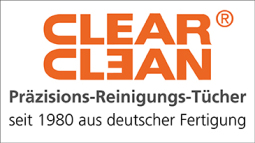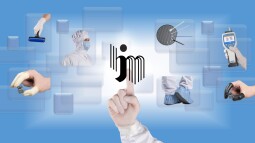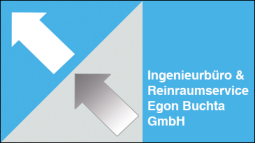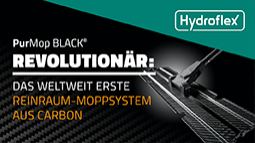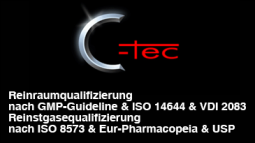Microfluidics and bio chips are the centre of attention at COMPAMED 2019
Suppliers prove that they are strong partners in a challenging market environment
“Companies showed up at COMPAMED to prove that they are innovative forces to be reckoned with and to demonstrate that they are strong partners for the medical technology industry in this market environment, which is becoming increasingly demanding,” observes Wolfram Diener, Operative Managing Director of Messe Düsseldorf. This fixed event, which always takes place alongside MEDICA, the world’s biggest medical trade fair that just broke its own record by hosting 5,500 exhibitors, this year’s COMPAMED also reached new highs by welcoming almost 800 exhibitors from 41 countries (held from 18 – 21 November 2019). Halls 8a and 8b at the Düsseldorf trade fair centre were fully booked out, confirming COMPAMED’s position as an internationally leading supplier platform once more. Once again, essential medical technology trends were reflected along with their relevance for upstream development and manufacturing stages and the supplier’s role as an important pace setter for medical advancement was highlighted.
Digitalisation remained a clear trend in the medical technology industry. The digital sphere is indispensable for medical technology devices for mobile diagnostics, therapy and laboratory equipment. “Microtechnology is the key to digitalisation in medical technology” emphasises Dr. Thomas Dietrich, Executive Director of the IVAM Microtechnology Network. “Wearable and networked devices simply wouldn’t exist without miniaturised components and procedures that enable ultra-precise manufacturing to be carried out”, he continued. As a result, the demand for miniaturisation of medical components continues to experience rapid growth. This is why most of the 55 exhibitors presenting at the biggest joint stand at COMPAMED, “Hightech for Medical Devices” from the IVAM market place, work in this sector. Focal points for the product market include microfluidics, sensor technology, microelectronics and optic technology. Microfluidics is coming up with exciting new application options at the moment.
A revolution in cell culture
IVAM member Micronit has promised no less than a revolution in cell culture, brought about by its new hybrid systems: A multidisciplinary field has been developed under the “Organ on a chip” concept. Here, human cell biology and microfluidics are merged together on lab-on-a-chip architecture. Organ-on-a-chip devices consist of a microfluidic platform that the user manipulates to tailor-make a highly biomimetic system in an artificial environment. The cell culture chips simulate the physiological reactions of organs. These types of applications are the fastest-growing research areas in the life science and pharmaceutical industries. The relevant devices from Micronit have already been used in many research laboratories all over the world and have proven that they are perfect for creating artificial models in the field, including colon and kidney models. “The systems for these are often constructed using different materials such as glass, silicon and polymers; hybrids such as these are part of our core business skill set”, stated Remy Wiertz, Key Account Manager at Micronit.
Biochips can replace animal testing
Organ-on-a-chip systems can also be used to investigate active agents in medicines. Due to ethical, economic and scientific reasons, animal testing experiments are being used less and less. This has been brought about by the increasing use of biochips that are colonised with human cells from different organs and supplied with nutrient fluid via small channels. The circulation system and metabolic functions can be simulated using this technology. The active agents of different medicines, cosmetics or chemicals are added, and the subsequent observations enable conclusions to be drawn on the reactions and processes on and in the human body. A high-precision dosage system based on microsystem technology is required to continuously supply the cells with fluid nutrients. It has to be very precise because even tiny fluctuations can affect the test results. These systems are manufactured by HNP Mikrosysteme under the brand name “LiquiDoS”. The systems’ cores are formed by a micro annular gear pump which is optimally suited to filling the biochips. “Gradual volumetric flows from 1.5 microlitres per minute up to 72 millilitres per minute and dosing volumes from 0.25 microlitres can be administered with our pump”, reports Dr. Dorothee M. Runge, who is responsible for Technical Sales Life Science at HNP.
Tools for isolating cells
A diagnosis of cancer is still terrifying to receive, despite decades of research effort. Even now, only relatively unspecific and aggressive therapies are available for many cases. Scientists now know that every cancer patient requires a treatment that is tailored to the patient. The option of investigating the cells of a tumour individually in detail is an important step towards providing this. To achieve this, doctors need tools in order to isolate a mass of cells, to separate them from each other so that they are available for further analysis. At the Fraunhofer Institute for Microengineering and Microsystems (IMM), scientists are working hard to develop automated methods for isolating and detecting cells. The fact that objects that are a few micrometres in size, such as cells, can be influenced in a targeted manner through microfluidic flows (flows of very small amounts of liquid through very narrow channels, ranging in size from 10 to 100 micrometres) is exploited here. Based on this, a micro dispensing system was developed. This system can detect a few cells in a mass of cells completely automatically and pick them out, placing each individual cell in a separate well on a microtiter plate to make them available for further analysis. To achieve this, the cells are first coloured with a fluorescent dye, transported through a detection zone in a microfluidic flow, illuminated with a laser and determined using the resulting fluorescent radiation. If a cell is detected as cancerous, it is isolated using a targeted pressure pulse. “CTCelect, our fully automated system for circulating tumour cells, will soon be ready to use in research”, promises Dr. Sabine Alebrand, who is responsible for the project at the IMM.
Molecular diagnostics for cells, proteins and DNA
The technology platform SYONIS from Jenoptik also offers completely new options for the life sciences sector. “Depending on how it is configured, our modular system can detect cells, proteins or DNA”, explains Dr. Ute Hoffman, the Product Manager for Biophotonics at Jenoptik. SYONIS can easily be integrated into existing instruments or new developments thanks to the combination of partially standardised optic, opto-mechanic and electronic modules which are endowed with high-performance image processing and control software. Jenoptik is a system integrator and adapts its imaging processes to the customer’s wishes quickly and at a low price. Productivity in scientific and clinical laboratories can be increased significantly using this method. In addition to live cell imaging, SYONIS also supports flow cytometry and molecular diagnostics. “With SYONIS, we’re focusing our many years of expertise in digital imaging on the rapidly growing market of biophotonics”, states Dr. Stefan Traeger, Chairman of the Executive Board of Jenoptik.
Pharmaceuticals and medicine: huge markets for packaging
COMPAMED 2019 gave a sneak preview of what’s due to appear in the world of medical packaging next spring. At the international exhibition for the packaging industry, interpack in Düsseldorf (7 - 13 May) held once every three years, around a third of the 3000 exhibitors will offer solutions for applications in the pharmaceutical sector. The big stakeholders make sure that they get involved at COMPAMED every year. This is true of MULTIVAC, for example. They have stated that they have the broadest portfolio of packaging solutions on the market. The company presented its comprehensive automation and application expertise in packaging small to medium-sized batches of medical products. Their efficient solutions are perfect for packaging a wide variety of products in different packaging formats. The pride of MULTIVAC’s exhibition was a packaging line for packaging sterile medical goods. It is equipped with an automated feed system for loading pre-filled glass or plastic syringes. The core of the line is the R 245 thermoforming packaging machine, which can be configured to suit the consumer’s needs. “This solution can package 300 syringes per minute, and achieve much more besides”, says Verena Vetter, Product Manager for the Medical & Pharmaceutical Division at MULTIVAC.
For the growing market in intelligent plasters fitted with sensors and wireless technology, Harro Höfliger focused on manufacturing and packaging solutions. “We combine different processes and technology to produce and pack these plasters. In addition to a variety of dosing systems, we are also using microfluidics more”, states Dieter Haberzettl, Business Unit Leader for Diagnostics at Höfliger. The production of the functional plaster is executed by web processing machines, which laminate special web materials that contain the electronic sensor chip and its peripherals. Then the plasters are cut or stamped out of the web material in the desired size.
COMPAMED- an eternal success story: Components and drives
Other eternal success stories at COMPAMED include components and drives. MeKo Laser Material Processing, for example, has been producing components with narrow tolerance ranges and perfect surfaces for over 25 years. They have just brought out resorbable materials that dissolve completely in the human body. “This means that we have a material alternative for stents that were previously made from steel and nickel titanium”, explains Time Fries, Product Manager and Customer Advisor at MeKo.
Nanotec Electronic, on the other hand, is a leading manufacturer of motors and control systems for high-quality drive solutions. Their diverse portfolio of products also targets laboratory automation and medical technology: “For us, this is the biggest field of application, even bigger than machine engineering”, confirms Harald Bär, Sales Engineer at Nanotec. Their portfolio extends from small drives for fine-tuned dosage of small amounts, which run at up to only 5 rpm, to dialysis pumps that provide very consistent delivery to high-speed drives that can provide up to 30,000 rpm.
Exact dosage and bacteria-resistant coating
Dosage technology and coating are two enduring and important topics at COMPAMED. The company Vieweg showcased their special dosing systems and a newly developed micro dosing valve for contactless and jet-forming dosage of liquid media. The tiniest and most precise amounts of liquid (from 5 nanolitres per shot) can be handled with their systems. Their main field of application is the production of medical technology, where the smallest amounts of liquid are needed, e.g. a wide variety of adhesives, solvents or silicones.
Meanwhile, LEONI Special Cables has set its sights on preserving hygiene standards and has developed antimicrobial cables and systems for medical technology, e.g. for devices used on, around and inside the body such as ECG machines, endoscopy and ultrasound systems. These products have a bacteria-killing synthetic surface that is effective against both gram-positive and gram-negative bacteria (including multi-resistant pathogens such as MRSA, VRE and ESBL) as well as viruses and fungi. Even when only a small amount of metal oxide is injected into the coating material, a significant bacteria reduction of over 99.99% is achieved for the surface. The antimicrobial effect remains intact at different usage times and different concentrations, even under normal handling (challenged with sweat and protein). This is a stark contrast to the established silver and copper methods currently on the market.
COMPAMED 2019 and MEDICA 2019, held in parallel, took in a total of 121,000 professional visitors between them. Two-thirds came from abroad, representing some 170 countries.
Messe Düsseldorf GmbH
40001 Düsseldorf
Germany


